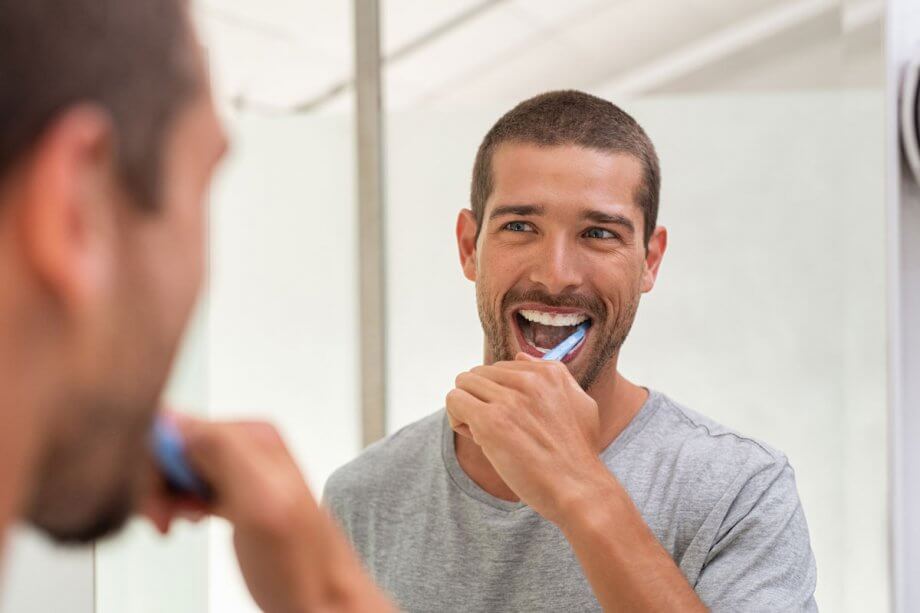Everyone has occasional bad breath—if you’ve never woken up with morning breath or noticed your significant other turning away from you after you’ve enjoyed a garlicky pasta dinner at your favorite restaurant, you’re probably not human! Chronic bad breath is more concerning. Not only is it embarrassing, it can also be a sign of an underlying medical or dental issue. Here are some tips on how to prevent bad breath—and what to do if you try everything and none of it seems to help.
Practice Good Oral Hygiene Habits
First thing’s first: your oral hygiene habits play a significant role in whether or not you have bad breath. One of the most common causes of bad breath is the bacteria in your mouth. When food debris isn’t brushed away regularly, the bacteria can multiply quickly, causing odor.
Good oral hygiene means:
- Brushing for two minutes, twice a day. When you brush, make sure you’re cleaning the fronts of your teeth, the backs of your teeth, and the chewing surfaces.
- Flossing at least once a day. It’s just not possible to remove all of the plaque in your mouth with brushing alone. Floss between all of your teeth, down to the gum line.
- Brush your tongue. If you want, you can buy a tongue scraper, but your toothbrush will do the job just fine. Remove the white buildup on your tongue after you finish brushing your teeth.
- Rinse wisely. Rinsing is optional, but if you do rinse, make sure you do so with a mouthwash that is meant for bad breath or dry mouth. Some mouthwashes contain alcohol, which can dry out your mouth—and dry mouth can cause bad breath.
Quit Smoking
There are many good reasons to quit smoking and bad breath might not rank very high on the list, but if you’re embarrassed by bad breath, your smoking habit might be the cause. Not only does the smoke itself leave your breath smelling bad, but smoking causes dry mouth.
Prevent Dry Mouth
In a healthy mouth, saliva works to rinse away dead cells, food debris, and bacteria throughout the day. When your mouth is dry and your saliva isn’t doing its job, bacteria begins to multiply.
Bacterial overgrowth is bad news for many reasons. Not only does it cause odor on its own, but excessive plaque eventually hardens into tartar and tartar can cause cavities and gum disease—both of which lead to bad breath.
Unfortunately, dry mouth is often caused by prescription medications and for most patients, it’s not an option to stop taking them. The best way to prevent dry mouth is to keep a water bottle or glass of water with you and sip from it all day long. If you’re someplace where you can’t drink, try a sugar-free lozenge or piece of gum to stimulate saliva production.
Go to the Dentist Every Six Months
At your regular dental exams and cleanings, plaque and tartar is removed from the surfaces of your teeth, which reduces the risk of cavities and gum disease. If you do have cavities and gum disease, diagnosing and treating these issues may be all that is needed to cure your bad breath.
Your visits also give you the opportunity to discuss your concerns with us. We’re always happy to recommend strategies to help you combat bad breath or identify the underlying cause.
When Bad Breath Doesn’t Go Away
If you’ve tried all of the strategies above and you still have bad breath, it may be a sign of a medical issue. Bad breath can be caused by allergies, sinus problems, tonsil stones, GERD, and other health conditions. If you have no dental issues causing your bad breath, it’s a good idea to see your primary care physician for a health assessment.
Learn More About Bad Breath
If you’d like to schedule an appointment with one of our doctors to find out what’s causing your bad breath, contact us today at one of our three New Jersey locations.

